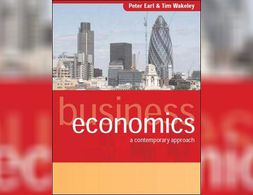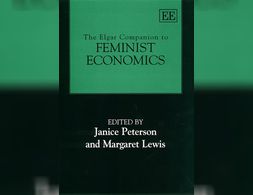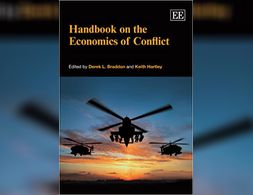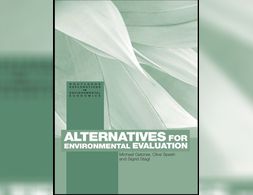✕
159 results
This text summarizes the content of the 2018 Nobel Prize winner W. Nordhaus. It is extended by some critical perspectives on this topic. The short dossier gives an overview of the most important texts we have read in the climate economics reading group.
This paper is a product of an online workshop held in Nigeria on the topic Unemployment: Policy Review and Recommendations. It explores the various unemployment policies introduced by the Nigerian Government and analysis how effective they are and suggests some practicable solutions to solving unemployment problems in the country.
The workshop was organized by Rethinking Economics The Uploaders (RETU) as part of the project Solving the Major Economic Problem in Nigeria (SMEPN), an output of the Global Pluralist Economics Training (GPET).
More details here: https://www.retheuploaders.org/programs/SMEPN
This module examines current socio-political issues through the lens of pluralism, that is pluralism of theory, pluralism of method and interdisciplinary pluralism
Recovery from the Covid-19 crisis provides a chance to implement economic measures that are also beneficial from environmental and social perspectives. While ‘green’ recovery packages are crucial to support economies tracking a low-carbon transition in the short-term, green measures such as carbon pricing are also key to improving welfare in the long-term. This commentary specifies the need for carbon pricing, outlines its implications for our everyday lives, and explains how it works alongside value-based change in the context of climate action and societal well-being.
This course focus on the behaviour of individuals from an pluralist economic and an interdisciplinary bevavioural science apprach.
The goal of the class is to acquire familiarity with recently-published research in alternative macroeconomics with a focus on the distribution of income and wealth, cyclical growth models, and technical change.
This workshop offers an introduction to Degrowth and Ecological Economics. It starts by surveying the socio-ecological crisis and its pseudo-solutions, and then moves to Ecological Macroeconomics as a relatively recent field of scholarship within Ecological Economics.
The goal of the course is to deepen students’ understanding of the Latin American development experience by viewing it through a gender lens.
The present working paper is dedicated to fill a void in the degrowth literature related to the aspect of planning to achieve post-growth models of societies. The authors propose a new framework that focuses on non-market forms of planning and propose multi-level planning institutions to mediate the local level with society-wide and global institutions.
The complex economic problems of the 21st century require a pluralist, real-world oriented and innovative discipline of economics that is capable of addressing and teaching these issues to students. This volume is a state-of-the-art compilation of diverse, innovative and international perspectives on the rationales for and pathways towards pluralist economics teaching.
Designed for both undergraduates and MBA students taking their first course in business economics, this text focuses on introducing students to economics as a framework for understanding business. It is structured around problems that decision-makers face, such as rejuvenating the firm in the face of declining demand.
This Companion takes stock of the trajectory, achievements, shortcomings and prospects of Marxist political economy. It reflects the contributors' shared commitment to bringing the methods, theories and concepts of Marx himself to bear across a wide range of topics and perspectives, and it provides a testimony to the continuing purpose and vitality of Marxist political economy.
Designed for a single-semester undergraduate course, this introductory economics textbook updates traditional macroeconomics to encompass twenty-first century concerns. In contrast to standard texts, the book starts with the question of human well-being, and then examines how economic activities can contribute to or detract from it.
The Elgar Companion to Feminist Economics is the first comprehensive reference work introducing readers to the field of feminist economics. It includes 99 entries by 88 authors.
The Handbook on the Economics of Conflict conveys how economics can contribute to the understanding of conflict in its various dimensions embracing world wars, regional conflicts, terrorism and the role of peacekeeping in conflict prevention. The economics of conflict is a relatively new branch of the discipline of economics.
Environmental cost-benefit analysis was developed by economists in the belief that monetary valuation of the environmental repercussions of economic activity is essential if the "environment " stands any chance of being included in government and business decisions.
Ecological economics addresses one of the fundamental flaws in conventional economics--its failure to consider biophysical and social reality in its analyses and equations. Ecological Economics: Principles and Applications is an introductory-level textbook that offers a pedagogically complete examination of this dynamic new field.
"Ecological economics is an exciting interdisciplinary field of study that combines insights from the natural sciences, economics, philosophy and other fields to develop innovative approaches to environmental problems.
Within the heterodox field one of the most active topics is related to the theory of economic growth and distribution This is a textbook for advance undergraduate and graduate students Throughout its 18 chapters Classical Neoclassical and post Keynesian models are developed Each chapter contains study problems and suggested readings …
From Marketisation to Armed Conflict Since 1991 nominally independent Ukraine has been in turmoil with the Orange Revolution and the Maidan protests marking its most critical moments Now its borders are threatened and the civil unrest and armed conflict continue to destabilise the country In order to understand these dramatic …
Feminist economics focuses on the interdependencies of gender relations and the economy. Care work and the partly non-market mediated reproduction sphere are particularly emphasised by feminist economics.
The Covid-19 pandemic has laid bare the deep structural rifts in modern capitalist economies. It has exposed and exacerbated the long-lasting systemic inequalities in income, wealth, healthcare, housing, and other aspects of economic success across a variety of dimensions including class, gender, race, regions, and nations. This workshop explores the causes of economic inequality in contemporary capitalist economies and its consequences for the economy and society in the post-pandemic reality, as well as what steps can be taken to alleviate economic inequality in the future. Drawing from a variety of theoretical and interdisciplinary insights, the workshop encourages you to reflect on your personal experiences of inequality and aims to challenge the way in which the issue is typically approached in economics.
As opposed to the conventional over-simplified assumption of self-interested individuals, strong evidence points towards the presence of heterogeneous other-regarding preferences in agents. Incorporating social preferences – specifically, trust and reciprocity - and recognizing the non-constancy of these preferences across individuals can help models better represent the reality.
Stratification economics is defined as a systemic and empirically grounded approach to addressing intergroup inequality. Stratification economics integrates economics, sociology and social psychology to distinctively analyze inequality across groups that are socially differentiated, be it by race, ethnicity, gender, caste, sexuality, religion or any other social differentiation.
Tetteh Hormeku-Ajei, member of the Post-Colonialisms Today Working Group, provides insight on the history of primary commodity export dependence in Africa, and relates it to the difficulties African governments are facing finding necessary resources to tackle the COVID-19 pandemic.
How can we establish new institutions and practices in order to use fare-free public transport as a beacon for sustainable mobility and a low-carbon lifestyle? The author of this essay elaborates on how practice theory and institutional economics can help to answer this question.
The module is designed to first present some of the main schools of thought from a historical and methodological perspective. Each week we explore and critically assess the main tenants of each school of thought. In the second part of the module we link history of economic thought and methodology to a specific and contemporary economic question. The second part allows you to engage with current economic issues with an awareness of methodology and methodological differences and with some knowledge of the history of economics.
The objective of the course is to explore the main strengths and weaknesses of orthodox and heterodox paradigms within development economics.
An examination of women's changing economic roles. Includes an analysis of labour force participation, wage inequality, gender differences in education, intra-household distribution of resources, economics of reproduction, and how technological change affects women.
Marxian Political Economy focuses on the exploitation of labour by capital. The economy is not conceived as consisting of neutral transactions for exchange and cooperation, but instead as having developed historically out of asymmetric distributions of power, ideology and social conflicts.
Evolutionary economics focuses on economic change. Hence processes of change such as growth, innovation, structural and technological change, as well as economic development in general are analysed. Evolutionary economics often gives emphasis to populations and (sub-)systems.
As seen with the United Nations significant promotion of the Sustainable Development Goals (SDGs) in the past few years, the issue of global development is of growing concern to many international organizations. As humanity continues to become more interconnected through globalization, the inequalities and injustices experienced by inhabitants of impacted countries becomes increasingly clear. While this issue can be observed in the papers of different types (e.g., different schools of thought) of economists throughout the world, the work of behavioral and complexity economists offer a unique, collaborative perspective on how to frame decisions for individuals in a way that can positively reverberate throughout society and throughout time.
We use cookies on our website. Click on Accept to help us to make Exploring Economics constantly better!
























